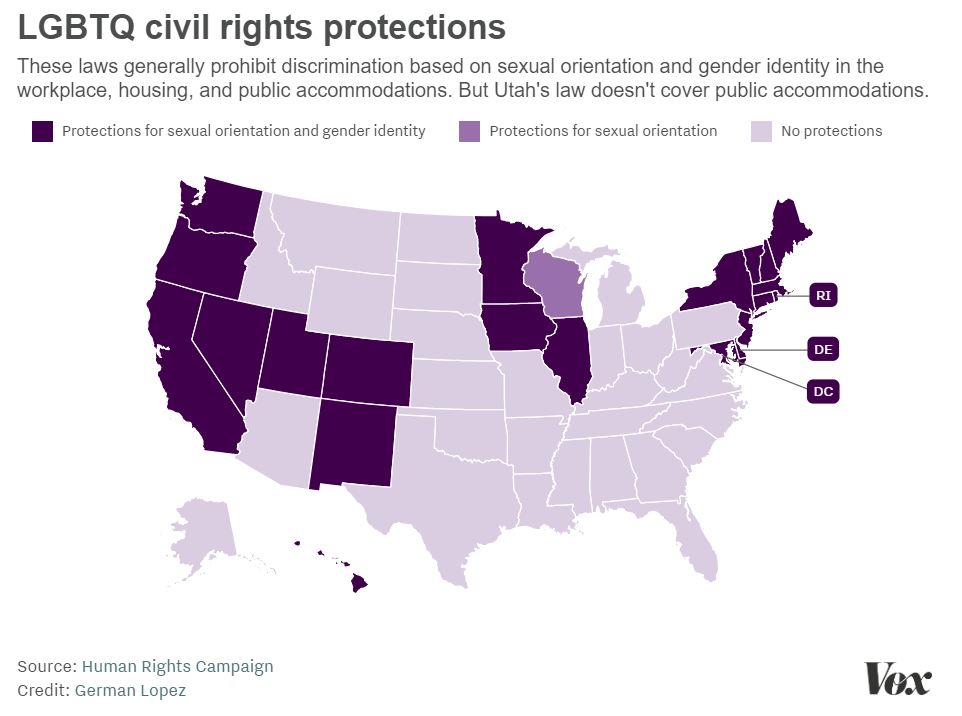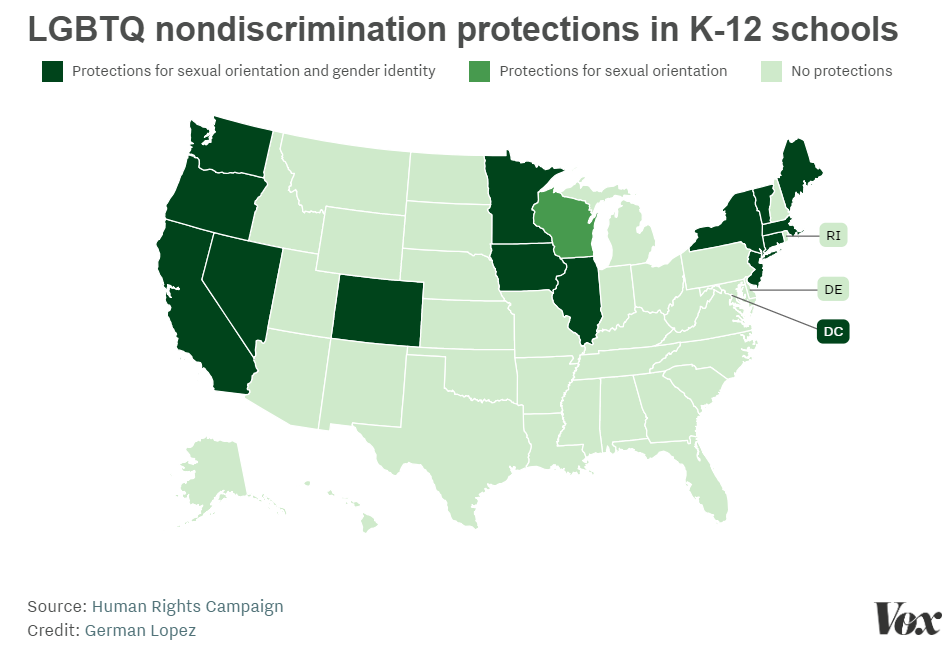Pride began as a way to commemorate the Stonewall Riots, which occurred in June of 1969. The Stonewall Inn was one of the few places LGBTQ individuals could congregate. When the police raided the bar in the early hours of the morning on June 28th, violence erupted. The riots are said to be the spark that brought the LGBTQ community together as a cohesive unit to fight the injustices we were experiencing. Forty years later, we’ve seen significant change, but are still fighting for the same protections given to our non-LGBTQ peers.
This Pride month, there are several LGBTQ issues on the table in courts across the nation. Title VII of the Civil Rights Act of 1964 forbids discrimination on the basis of sex. Currently, three cases are sitting before the Supreme Court to determine whether this act encompasses discrimination based on gender identity or sexual orientation. In both Altitude Express Inc. v. Zarda and Bostock v. Clayton County, Georgia, a skydiving instructor and a child welfare services coordinator said they were fired for being gay. In R.G. & G.R. Harris Funeral Homes v. Equal Employment Opportunity Commission, a funeral home employee was fired after coming out as transgender in a letter to her coworkers.


While Title VII doesn’t explicitly cover gender identity or sexual orientation, laws are made to be flexible and to adapt to the changing times. The argument is that Title VII should cover anti-trans and anti-gay discrimination because both are rooted in discrimination based on sex. Anti-gay discrimination draws on antiquated ideas of who individuals should love based on their sex (the opposite gender). Anti-trans discrimination does the same, drawing on ideas about how an individual should act, carry themselves, and look based on their sex.
In Texas, a new bill could potentially threaten the LGBTQ community as well. While the state does not have a statewide bill protecting LGBTQ individuals from discrimination, the House recently passed Senate Bill 1978, a religious liberty bill which prohibits the government from punishing individuals or organizations for their “membership in, affiliation with, or contribution … to a religious organization.” Many believe the bill was sparked in response to the outcry over political donations made by Chick-fil-A, the bulk of which went to a Christian organization that requires members to maintain sexual purity and specifically outlaws “homosexual acts.” LGBTQ advocates fear SB 1978 will protect anti-LGBTQ organizations from facing punishment for discriminatory acts.
Providing some hope and optimism is The Equality Act, sponsored by a democrat from Rhode Island, which recently passed the House. The bill would prohibit discrimination against LGBTQ individuals in a variety of ways – housing, employment, and credit, among others. Unfortunately, the bill is not believed to have the support it needs to pass the Senate and the president has indicated he will not sign it.
Anti-LGBTQ laws have risen and fallen for decades. Florida, in particular, has a unique history.
A timeline of LGBTQ rights in FL:
While much progress has been made, there is still a long way to go. Members of the LGBTQ community are more likely have drug or alcohol abuse problems (15% vs. 8% in the gen pop) and more likely to suffer from mental illness (1 in 3 vs. 1 in 5). In addition, our mental health disorders are more likely to have severe symptoms that substantially interfere with everyday life.
There are several causes behind these statistics, the biggest being continued prejudice and stigma that includes denial of civil and human rights, abuse, harassment, victimization, and family rejection. Disparities in the medical care field can also contribute to these rates. While homosexuality was removed from the DSM over 35 years ago, many LGBTQ individuals remember the time when we faced forced hospitalizations, aversion and electroshock therapy. Conversion therapy is still legal on LGBTQ youth and many providers still do not understand or have the training to work with us. Even millennials and Gen Zers have friends who are dying from HIV/AIDS or are committing suicide in their teens. Lots of us still face discrimination, rejection, and violence to this day.
While GLS explicitly protects employees based on LGBTQ status, there is still no federal law prohibiting discrimination against us. The upcoming months will set an important precedent in the United States. It will decide if our rights as workers and as human beings will be protected or not, and will help us determine the course of our advocacy over the next few decades.
– Chelsea
This blog contains reflects the opinions of the author and doesn’t necessarily reflect the opinions of GLS.